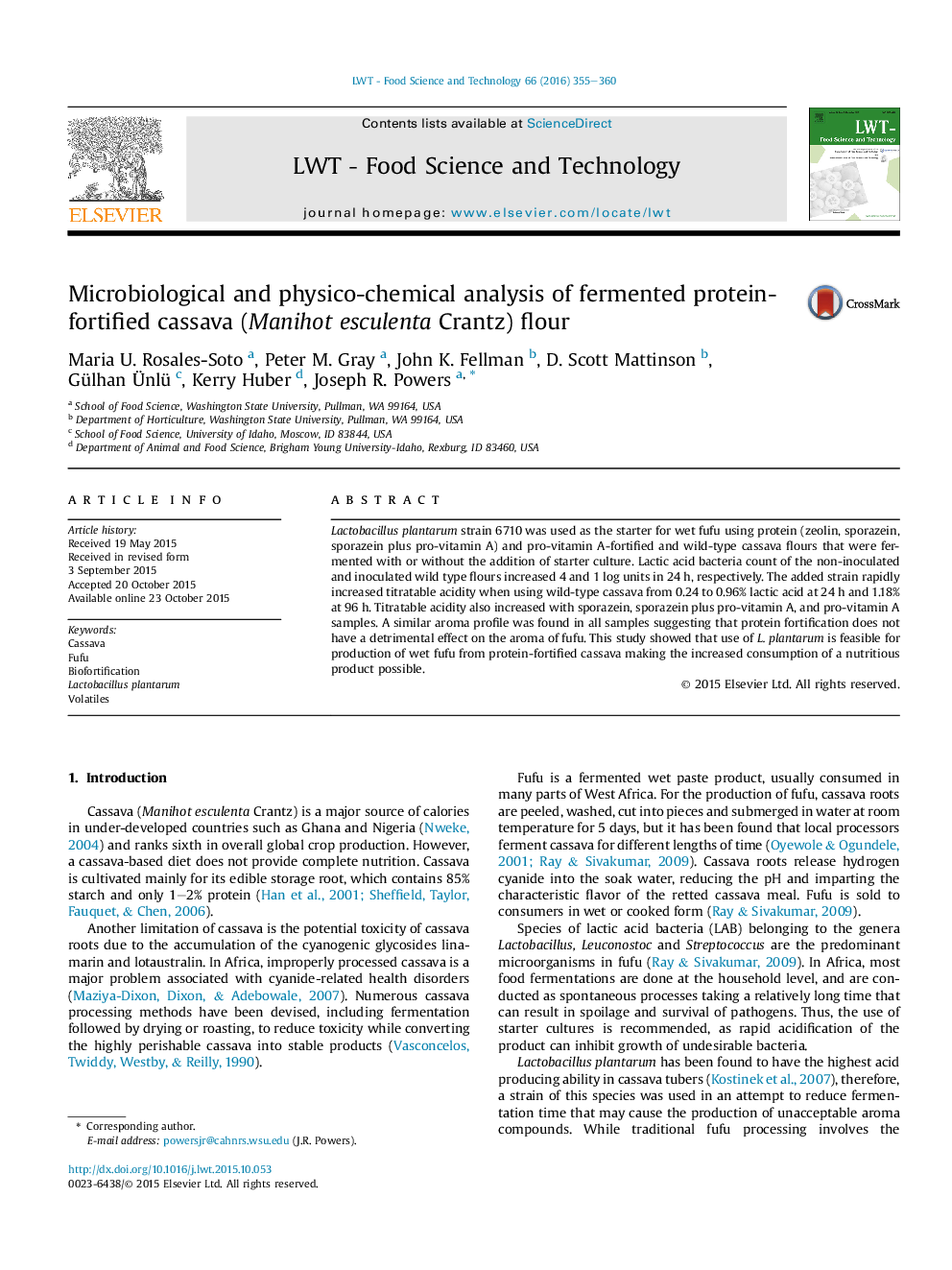| Article ID | Journal | Published Year | Pages | File Type |
|---|---|---|---|---|
| 6400971 | LWT - Food Science and Technology | 2016 | 6 Pages |
â¢Lactobacillus plantarum acidified cassava flour during wet fufu processing.â¢Fermented fortified and wild-type cassava samples showed similar volatile compounds.â¢Fortified wet fufu products offer a nutritious alternative for fufu consumers.
Lactobacillus plantarum strain 6710 was used as the starter for wet fufu using protein (zeolin, sporazein, sporazein plus pro-vitamin A) and pro-vitamin A-fortified and wild-type cassava flours that were fermented with or without the addition of starter culture. Lactic acid bacteria count of the non-inoculated and inoculated wild type flours increased 4 and 1 log units in 24Â h, respectively. The added strain rapidly increased titratable acidity when using wild-type cassava from 0.24 to 0.96% lactic acid at 24Â h and 1.18% at 96Â h. Titratable acidity also increased with sporazein, sporazein plus pro-vitamin A, and pro-vitamin A samples. A similar aroma profile was found in all samples suggesting that protein fortification does not have a detrimental effect on the aroma of fufu. This study showed that use of L. plantarum is feasible for production of wet fufu from protein-fortified cassava making the increased consumption of a nutritious product possible.
